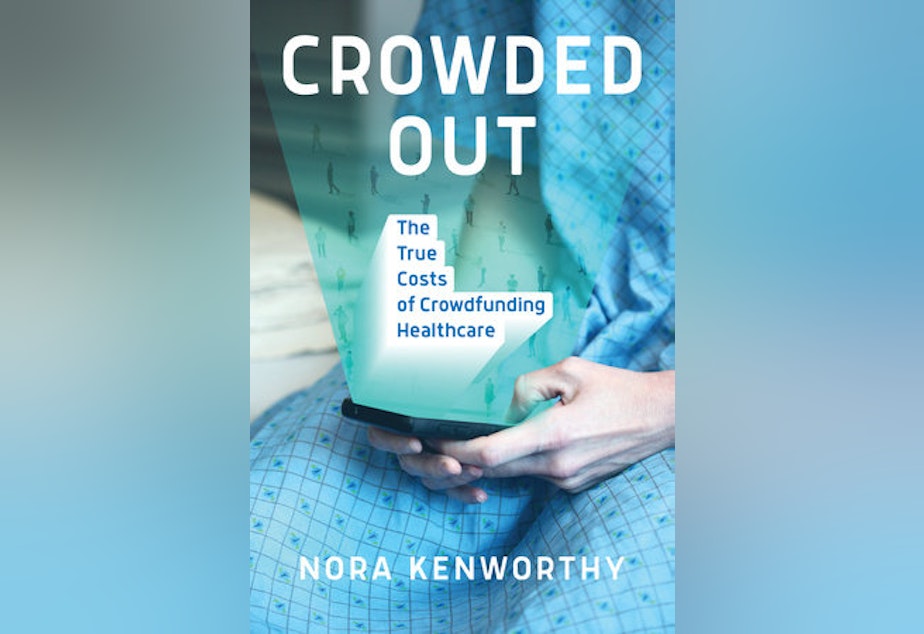Crowdfunding for health care. UW-Bothell prof examines the trend in new book

You’ve likely seen it on Instagram reels or in a Facebook post or on TikTok – a friend or acquaintance raising money for medical care on GoFundMe.
The platform rose to prominence over the last decade. After nearly every large-scale tragedy a GoFundMe pops up.
Campaigns after the shooting at the Pulse Nightclub in Orlando and Marjorie-Stoneman Douglas High School in South Florida raised millions of dollars.
GoFundMes have also been a source of controversy, one of the highest earning projects on the platform was a campaign to build a wall between the United States and Mexico.
Underneath the surface of these high-profile campaigns are innumerable individual campaigns raising money for cancer treatment, insulin, or other life-saving medical care. Those individuals have a wide range of experiences with a platform.
Sponsored
To Nora Kenworthy, the rise of the platform over the last decade is no surprise. While crowdfunding is used throughout the world, the United States has a specific propensity for medical crowdfunding, because the country has a “highly marketized health care system.”
“People carry a lot of out-of-pocket costs, and they carry a lot of the costs of catastrophic care. And probably the U.S. is the best example we could think of, in terms of a health system that really straddles people with those kinds of costs,” Kenworthy said.
Kenworthy is an associate professor at the University of Washington-Bothell and the author of "Crowded Out: The True Costs of Crowdfunding Healthcare."
In "Crowded Out," Kenworthy looked at the rise of the platform and the complicated moral questions it asks users. Crowdfunding contributes to the idea that the free-market ethics should be applied in the health-care setting.
“Few people succeed, there's much more need than there is response. Crowdfunding in many ways celebrates that type of sort of individual competition,” Kenworthy said.
Sponsored
Most donors are engaging with the platforms with a question of who is deserving of help. Kenworthy spoke with groups of potential crowdfunding donors and found that they heavily scrutinized campaigns — from questioning the legitimacy of a campaign to scrutinizing spelling and grammatical errors.
“All of that is fueling and normalizing this idea for all of us that, like we're in the seat of power in terms of deciding who's gonna get help and who isn't,” Kenworthy said.
Kenworthy is not saying crowdfunding is inherently bad, however. GoFundMe has become a place to share stories of illness or hardship.
“A lot of people who had financially unsuccessful campaigns would say things like, ‘It was so nice to connect with friends and family,’ or, ‘I felt love,’” she said.
About 12% of U.S.-based GoFundMe campaigns for medical treatment met their goals, according to a study led by Kenworthy. A little over 15% made no money at all.
Sponsored
Kenworthy said that the platform is part of a recent techno optimism in the health-care industry, where apps and other emergent technologies are seen as quick fixes to systemic problems in the medical field.
“I don't want to fault anyone for giving money to their friends and family when they have cancer. I want people to help other people out,” Kenworthy said. “But it's also important for us to recognize that we're not solving the bigger problems when we're doing that.
"We're just kind of pulling people out of a river while they're drowning. And we're not figuring out what's thrusting them into the river in the first place.”
Kenworthy will be at Town Hall Seattle on Tuesday, May 28 at 7:30 p.m.





